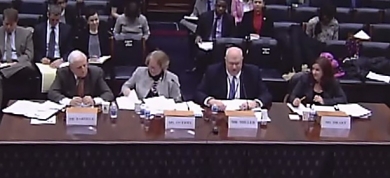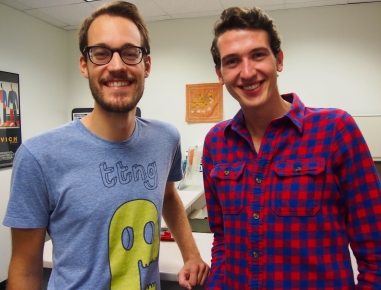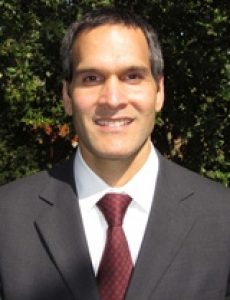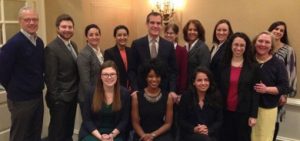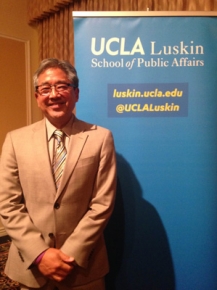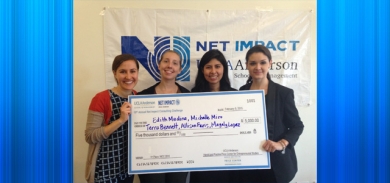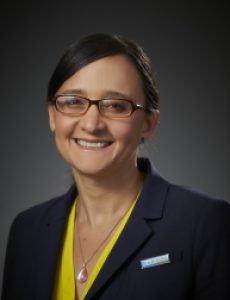Serving the Public Interest from the Statehouse to the Classroom Former governor Michael Dukakis has been teaching and inspiring students at UCLA Luskin for 20 years.
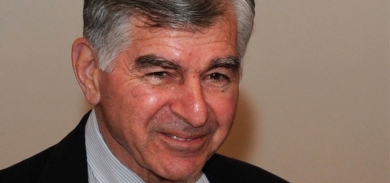
By Alejandra Velarde-Reyes
UCLA Luskin Student Writer
Though Michael Dukakis, the popular three-term Massachusetts governor and 1988 Democratic presidential hopeful, has had a multitude of experiences and stories he could tell, he takes pride in sharing the success stories of former students he remembers teaching at the Luskin School of Public Affairs.
Thinking back on some of his most memorable experiences teaching at Luskin as a visiting professor of Public Policy, Dukakis proudly recalls the day his former teaching assistant, Rusty Bailey (MPP ‘99), became mayor of the City of Riverside.
“That was his ambition,” Dukakis remembers of Bailey. “We spent time making personal contact with every house and every voter. He was elected city counselor and six years later he was elected mayor.”
The story is just one instance of many that demonstrate Dukakis’ interest in his students. This year marks the 20th year that the well-known and oft-quoted politician and professor has been teaching at UCLA Luskin.
Dukakis says that when his time as governor came to an end and he knew he wouldn’t be taking up residence on Pennsylvania Avenue, he had to ask himself what to do next. He recognized he had a desire to share his knowledge, and with the wealth of knowledge and experience in successful public service, he decided to parlay that passion into work with young people. His goal: to inspire them to also seek careers in public service. After teaching at Northeastern University for a few years, Dukakis planted his flag at UCLA.
Through his courses, “Institutional Leadership and the Public Manager” and “California Policy Issues,” he has inspired many students to enter the field of government and public service. Whether students come in for his regular office hours or contact him from across the country, Dukakis says he always tries to makes time for individuals who come to him for guidance.
Mayor Bailey says because of the years of mentorship he received, he now patterns his work after Dukakis’s leadership style.
“Personal connection and relationships are important to Michael, and he gives his undivided attention when he speaks to people,” Bailey says. “He also is very committed and leads by example…All of these things have influenced my leadership style in my elected office.”
Though Bailey thinks Dukakis would have influenced history and the country in a powerful way had he won in ‘88, he believes the influence his former professor has as an educator and mentor is just as powerful.
“I think those of us who love what we’ve done, whether a doctor or a politician, we enjoy teaching and encouraging young people to follow in our footsteps,” Dukakis says. “I spend a lot of time with my students to talk about their futures.”
In addition to seeing Bailey climb to mayorship, Dukakis excitedly recounts the stories of other successful former students. Among them: Veronica Melvin, who leads a nonprofit organization for improving schools in Los Angeles County, and Matt Dababneh and Jimmy Gomez, who serve as committee chairs in the California Assembly and represent areas near Los Angeles.
“In many ways, working with students is the best thing I do,” Dukakis says. “ I feel strongly about this country and the world, and the importance of getting young people deeply and actively involved (in public service).”
When students come to him for advice and mentorship, Dukakis emphasizes the importance of optimism. “You have to be passionate about what you’re doing. You have to hold high standards of integrity for yourself and the people you work with, and you have to be good at bringing people together,” he says.
Urban Planning student Ben Kaufman says he was surprised when he first emailed Dukakis with the hopes of getting advice on which graduate schools he should apply to.
“I thought it was a ludicrous idea to Google a previous presidential nominee’s contact information, cold-email him, and expect a response,” Kaufman says. “But I did just that, and amazingly, he followed up within a couple of hours.”
The following week, Kaufman says he had an hour-long conversation with Dukakis during which the seasoned politician recounted old war stories and listened to Kaufman’s plans and goals for the future. After receiving a recommendation letter from Dukakis, Kaufman was admitted to UCLA a few months later.
“It’s amazing to me how kind and genuine he is as a person outside of the classroom, no matter whom he is speaking with,” Kaufman says.
Public Policy chair Mark Peterson agrees that Dukakis has been a true asset to the department as a skilled teacher giving students an unique perspective on politics, policy and public management.
“With a door that is always open, Dukakis avails himself to all who want to discuss current affairs, the coming election, next steps in their educations and long-term career choices,” Peterson says. “A devoted friend of the department and UCLA Luskin, Mike’s spirit resonates throughout the Public Affairs Building.”
Bailey cites examples of the former governor’s humility and leadership in everyday life as well, recalling the time after Dukakis’ service in elected office ended, and he asked the U.S. Postmaster General for permission to paint over graffiti on mailboxes.
“He would go around with a can of paint in his hometown and paint over the graffiti,” Bailey says.
In another incident, Bailey remembers Dukakis humbly declining a first-class seat that a flight attendant offered him.
“He replied without skipping a beat, ‘No I want to sit in the back with the Democrats,’” Bailey says. “That speaks volumes about his character and leadership style. It’s always been about public service and doing the right thing, and not about politics.”
Dukakis describes his typical day as beginning at 5 a.m., spending time with students, and doing a fair amount of public speaking outside of teaching. Despite his busy schedule, he enjoys coming to Los Angeles each winter quarter and being a part of the UCLA community.
“One of the great things about teaching is that you walk into a ready-made community,” he says. “You become a part of this community and don’t spend time wandering from friends. I’ve gained some wonderful friendships (at UCLA).”
Outside of his life as a professor, mentor and public speaker, Dukakis says he likes living in Westwood with his wife, Kitty, walking to campus, and enjoying the skyline of downtown Los Angeles from his window on clear days.
“Our favorite pastime is taking a brisk two-mile walk down Ocean Drive in Santa Monica and eating oysters by the beach. We know people around the whole region. It’s been really great,” he says. “It’s gratifying to be in a position to encourage young people and inspire them. I’m hoping I’m contributing to this country and the world.”
In honor of Gov. Dukakis’ 20th year as a UCLA faculty member, friends of UCLA Luskin will join together at a lunch in support of the Michael S. Dukakis Internship in Public Service. The fundraiser aims to raise $250,000 for the internship program and to expand the opportunities it provides for students who are seeking careers in public service. To learn more about attending the lunch and supporting the internship program, contact Melissa Bersofsky at bersofsky@luskin.ucla.edu.
